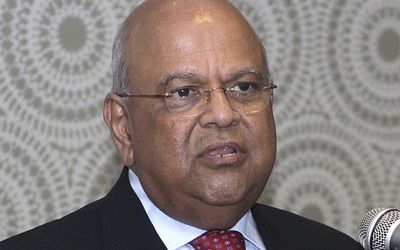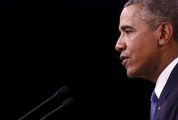SOUTH Africa’s economic development required "a bolder and more determined" focus on microeconomic reforms that fostered improvements in efficiency, innovation and productivity, Finance Minister Pravin Gordhan said on Monday.
"Macroeconomic stability prepares the ground for growth, but growth is not guaranteed without the necessary microeconomic reforms that determine whether savings and investment decisions are optimal. The economy relies on microeconomic reforms to reignite growth and create jobs," he said in a written reply to a parliamentary question by African National Congress (ANC) MP Zephroma Dlamini-Dubazana.
The minister was confident the country’s monetary and fiscal frameworks provided the disciplined macroeconomic management necessary to limit the fallout from the global instability. Policy measures to shield South Africa from global economic instability had to a large extent already become embedded in the fabric of economic policy making.
"Stable and transparent macroeconomic policies and robust institutions have made the economy more resilient to shocks and have promoted economic stability," the minister said.
Inflation targeting had ensured that inflation remained low and stable, he said. Inflation, which averaged 14% in the decade before 1994, fell to an average of 5.5% between 2003 and 2013. Also, prudent fiscal policy had helped steer the economy through one of the worst financial crises in more than a century and had created employment opportunities while creating space for increased spending on social priorities and investment.
Finally, Mr Gordhan said the flexible exchange rate had reduced external shocks, supported export growth and reduced the current-account deficit. "The rand is an important shock absorber for the economy, and is backed up by a credible monetary policy framework that limits the pass-through from a weaker rand to inflation in order to preserve the real value of the currency."
Replying to questions by Congress of the People MP Nick Koornhof, Mr Gordhan said the auditor-general would audit compliance to the cost-containment measures he introduced with effect from January 1 2014 and would report noncompliance through audit reports. He said Treasury had noted the efforts made by provinces and departments to implement the measures but it was too early to report on the effect of the measures.
Questioned by Democratic Alliance finance spokesman Tim Harris on whether President Jacob Zuma was eligible to pay fringe benefit tax on personal benefits derived from state expenditure, Mr Gordhan said all South Africans paid tax on their income and fringe benefits, be the person the president or an ordinary worker.
"South Africa is one of the few democracies where we are all equal when it comes to taxation, in that we are all taxed, with the exact amount determined by our income and fringe benefits, minus any allowed exemptions and deductions," Mr Gordhan said.
He cautioned that the tax affairs of all taxpayers were confidential and it would therefore be illegal for him to comment on the tax affairs of any individual taxpayer.
"However, I can say that, in general terms, a fringe benefit tax aims to put a taxable value on goods or services (or the use thereof) that are provided by an employer for the private use of its employees."

Pravin Gordhan. Picture: PUXLEY MAKGATHO
SOUTH Africa’s economic development required "a bolder and more determined" focus on microeconomic reforms that fostered improvements in efficiency, innovation and productivity, Finance Minister Pravin Gordhan said on Monday.
"Macroeconomic stability prepares the ground for growth, but growth is not guaranteed without the necessary microeconomic reforms that determine whether savings and investment decisions are optimal. The economy relies on microeconomic reforms to reignite growth and create jobs," he said in a written reply to a parliamentary question by African National Congress (ANC) MP Zephroma Dlamini-Dubazana.
The minister was confident the country’s monetary and fiscal frameworks provided the disciplined macroeconomic management necessary to limit the fallout from the global instability. Policy measures to shield South Africa from global economic instability had to a large extent already become embedded in the fabric of economic policy making.
"Stable and transparent macroeconomic policies and robust institutions have made the economy more resilient to shocks and have promoted economic stability," the minister said.
Inflation targeting had ensured that inflation remained low and stable, he said. Inflation, which averaged 14% in the decade before 1994, fell to an average of 5.5% between 2003 and 2013. Also, prudent fiscal policy had helped steer the economy through one of the worst financial crises in more than a century and had created employment opportunities while creating space for increased spending on social priorities and investment.
Finally, Mr Gordhan said the flexible exchange rate had reduced external shocks, supported export growth and reduced the current-account deficit. "The rand is an important shock absorber for the economy, and is backed up by a credible monetary policy framework that limits the pass-through from a weaker rand to inflation in order to preserve the real value of the currency."
Replying to questions by Congress of the People MP Nick Koornhof, Mr Gordhan said the auditor-general would audit compliance to the cost-containment measures he introduced with effect from January 1 2014 and would report noncompliance through audit reports. He said Treasury had noted the efforts made by provinces and departments to implement the measures but it was too early to report on the effect of the measures.
Questioned by Democratic Alliance finance spokesman Tim Harris on whether President Jacob Zuma was eligible to pay fringe benefit tax on personal benefits derived from state expenditure, Mr Gordhan said all South Africans paid tax on their income and fringe benefits, be the person the president or an ordinary worker.
"South Africa is one of the few democracies where we are all equal when it comes to taxation, in that we are all taxed, with the exact amount determined by our income and fringe benefits, minus any allowed exemptions and deductions," Mr Gordhan said.
He cautioned that the tax affairs of all taxpayers were confidential and it would therefore be illegal for him to comment on the tax affairs of any individual taxpayer.
"However, I can say that, in general terms, a fringe benefit tax aims to put a taxable value on goods or services (or the use thereof) that are provided by an employer for the private use of its employees."


























Register/Login
Close XMy News
You can only set up or view personalised news headlines when you are logged in as a registered user. Thereafter you can choose the sectors of industry in which you are interested, and the latest articles from those sectors will display in this area of your console.
Login or Register.Top Stories
My Watchlist
You can only set up or view your share watchlist when you are logged in as a registered user. Thereafter you can select a list of companies and enter your share details to monitor their performance.
Login or Register.My Clippings
You can only clip articles when you are logged in as a registered user. Thereafter you can click on the "Read later" icon at the top of an article to save it to this area of your console, where you can return to read it at any time.
Login or Register.Change: 0.84%
Change: 0.77%
Change: 1.55%
Change: 0.81%
Change: -0.48%
Data supplied by Profile Data
Change: -0.41%
Change: -0.12%
Change: 0.84%
Change: 0.00%
Change: -0.38%
Data supplied by Profile Data
Change: -0.01%
Change: -0.30%
Change: -0.39%
Change: 0.27%
Change: 0.48%
Data supplied by Profile Data
Change: -0.24%
Change: -1.43%
Change: -1.57%
Change: -1.70%
Change: -1.91%
Data supplied by Profile Data